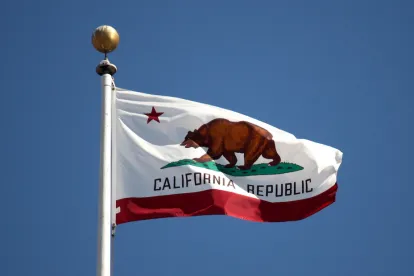In a recently published case dealing with issues of first impression, the California Court of Appeal Second Appellate District in Los Angeles held that the disgorgement penalty under Business and Profession Code § 7031(b) must be made within one year of completion or cessation of the performance of the project, and that time is not extended by the discovery rule. Eisenberg Village of the Los Angeles Jewish Home for the Aging v. Suffolk Construction Company, Inc., 2020 WL 5035826 (Cal. Ct. App., Aug. 26, 2020). BPC § 7031(b) permits a party who uses the services of an unlicensed contractor to recover any and all money paid to the contractor for its work—regardless of the quality of the work (indeed, even if the construction was flawless). The purpose of this harsh forfeiture provision is to deter unlicensed contractors from performing construction.
The case arises from the construction of a 108-unit assisted living facility in Reseda, California. In 2007, Eisenberg Village of the Los Angeles Jewish Home for the Aging (“Eisenberg”) engaged Suffolk Construction Company, Inc. (“Suffolk”) as the contractor to build the project, which was completed in 2010. Eisenberg initially filed a complaint alleging defects at the project. In 2015, Eisenberg amended its complaint to assert an entirely new cause of action under BPC § 7031(b) against Suffolk for disgorgement of every penny of the more than $49 million it was paid to construct the project. The trial court granted summary adjudication of the disgorgement claim and that ruling was the subject of the appeal.
The factual circumstances of the case are interesting in that Suffolk held a valid California contractor’s license at all relevant times. Eisenberg nonetheless pursued its disgorgement claim by seeking to retroactively strip Suffolk of its contractor’s license. Eisenberg alleged that the full-time employee whom Suffolk had designated as the “responsible managing employee” or “RME” did not adequately perform his oversight duties under BPC § 7068.1 simply because he had relocated to Suffolk’s Boston office during the term of the project. Eisenberg also argued that it could not have known the RME allegedly fell short of its BPC § 7068.1 duties during construction and that it first discovered potential issues regarding the status of Suffolk’s RME in 2015. The court of appeal affirmed the trial court’s holding that Eisenberg’s claims were time-barred and did not address whether a BPC § 7031(b) claim provides an automatic suspension of a contractor’s license for a violation of section 7068.1.
The appellate court held the applicable limitation statute to be one-year under CCP § 340(a) given that the disgorgement remedy provided by BPC § 7031(b) represents a “penalty” and a “forfeiture.” The court reasoned that BPC § 7031(b) “provides a windfall to the plaintiff, at the expense of the unlicensed contractor, since the plaintiff also retains the work completed by the contractor.” The court held:
When viewed in this context, it is clear that the disgorgement provided in section 7031(b) is a penalty. It deprives the contractor of any compensation for labor and materials used in the construction while allowing the plaintiff to retain the benefits of that construction. And, because the plaintiff may bring a section 7031(b) disgorgement action regardless of any fault in the construction by the unlicensed contractor, it falls within the Supreme Court’s definition of a penalty: ‘a recovery without reference to the actual damage sustained.’
Having determined the one-year statute of limitations applied, the appellate court next addressed the accrual date. In light of the equitable basis for the discovery rule, the appellate court held the discovery rule does not apply because “the disgorgement mandated by section 7031(b) is not designed to compensate the plaintiff for any harm, but instead is intended to punish the unlicensed contractor.” The court did observe that “[t]o the extent a plaintiff does suffer any injury caused by an unlicensed contractor that is not easily or immediately discoverable, the discovery rule would continue to apply to other claims seeking recovery for any damages the plaintiff suffered.”
The court also highlighted the rather absurd possible application of a discovery rule to a disgorgement claim that can arise ten years after completion, with no other basis for a claim against the contractor. That is, a plaintiff, who after ten years randomly “discovers” that the license had lapsed, could bring a section 7031(b) claim and get back all the compensation paid for the construction of a building the plaintiff has used without any problems for ten years. “An absurd result, to be sure, but there would be no principled way to avoid it under the discovery rule[.]” As such, the appellate court held “[t]o avoid such absurd results, and because there is no reason in equity to apply it, we hold that the discovery rule of accrual does not apply to section 7031(b) claims.” The cause of action is complete when an unlicensed contractor completes or ceases performance of the act or contract at issue.
The published opinion is instructive regarding at least two matters of first impression in California. It is now clear that the time limitation for a BPC § 7031(b) disgorgement claim is one year from completion of the project or cessation of the performance.



 />i
/>i

